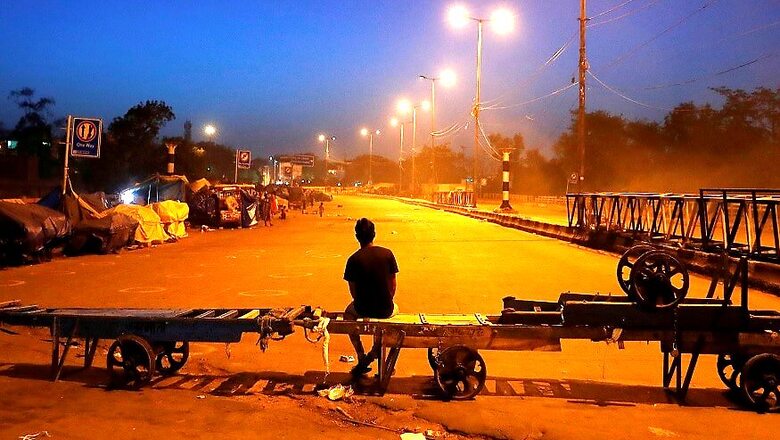
views
Levels of nitrogen dioxide fell by more than 70 per cent during the lockdown in New Delhi, a UN policy brief said on Tuesday, warning that the environmental gains could be temporary if the cities re-open without policies to prevent air pollution and promote de-carbonisation.
The UN Secretary-General's Policy Brief on 'COVID-19 in an Urban World' said that with an estimated 90 per cent of all reported COVID-19 cases, urban areas have become the epicentre of the pandemic. It also pointed out that several new scientific studies suggest that poor air quality is correlated with higher COVID-19 mortality rates. The size of their populations and their high level of global and local interconnectivity make them particularly vulnerable to the spread of the virus.
The brief said that while pollution and greenhouse gas emissions have fallen sharply during the pandemic when countries halted their economies to contain the spread of the virus, these environmental gains are expected to be temporary if economies reopen without policies in place that prevent air pollution and promote decarbonisation. "Levels of nitrogen dioxide fell by more than 70 per cent during the lockdown in New Delhi (India), 40 per cent in urban areas in China, 20 per cent in Belgium and Germany, and 1940 per cent in different areas of the US," the brief said.
A small increase in fine particulate matter has been associated with an 8 per cent increase and up to 21.4 per cent increase in death rates in the US and the Netherlands, respectively, it said. New evidence also points to impacts on pregnant women and newborn babies as well as maternal mortality, particularly among populations already facing socio-economic stress due to marginalisation.
On COVID-19 outbreaks in informal settlements, the brief said that in Mumbai, as of mid-April 2020, 30 per cent of designated containment zones which are areas with large outbreaks were in slums, while 60 per cent were within 100 metres of an informal settlement, it said. In his message, UN chief Antonio Guterres said urban areas were ground zero of the COVID-19 pandemic, with 90 per cent of the reported cases.
"Cities are bearing the brunt of the crisis many with strained health systems, inadequate water and sanitation services, and other challenges. This is especially the case in poorer areas, where the pandemic has exposed deeply rooted inequalities," he said. "We must act with the same urgency and resolve to transform cities and address the climate and pollution crises. Now is the time to rethink and reshape the urban world," he said.
The brief said that recognising the differentiated exposure to risks and impacts, some governments have designed tailored measures for vulnerable groups. It cited the example of Pune where a collective of waste-pickers has been distributing gloves and masks to informal waste-pickers. "In many cities, informal waste-pickers make an important contribution to waste management but are at heightened risk during the pandemic without adequate protection, it said.
The brief noted that urban density does not inevitably correlate with higher virus transmission. Cities are largely vulnerable as a result of choices about how they are organised and how people live, work and travel in and around them. The pandemic has also exposed deep inequalities in how people live in cities, and how cities serve their residents. The already vulnerable have suffered most – 24 per cent of the world's urban population live in slums and less than half the global population can access open public spaces within 400 metres' walking distance of their homes.
The UN chief said the policy brief recommends that there is a need to ensure that all phases of the pandemic response tackle inequalities and long-term development deficits and safeguard social cohesion. "We must prioritise those who are the most vulnerable in our cities, including guaranteeing safe shelter for all and emergency housing to those without homes," he said, adding that access to water and sanitation is also vital.
He said the inadequate state of public services in many cities requires urgent attention, particularly in informal settlements. "Nearly one-quarter of the world's urban population lives in slums. Local governments are already taking action from prohibiting evictions during the crisis to putting in place new clean water stations in the most vulnerable areas, the UN chief said.
There is a need also to strengthen the capacities of local governments and this requires decisive action and deeper cooperation between local and national authorities, he said. "Stimulus packages and other relief should support tailored responses and boost local government capacity," Guterres said.
The brief also recommends that nations must pursue a green, resilient and inclusive economic recovery. "By focusing on high ecological transformation and job creation, stimulus packages can steer growth towards a low-carbon, resilient pathway and advance the Sustainable Development Goals," he said.














Comments
0 comment